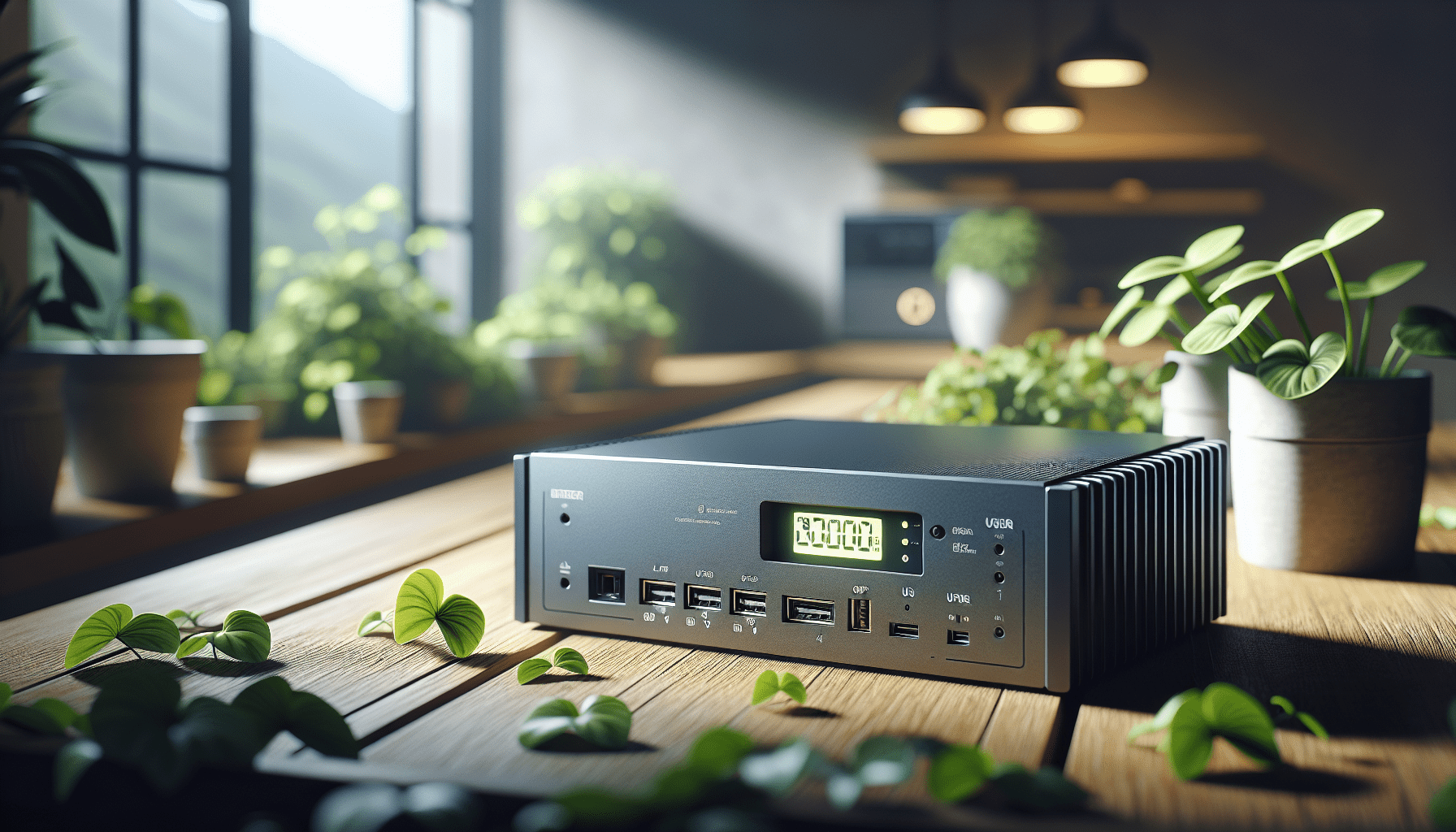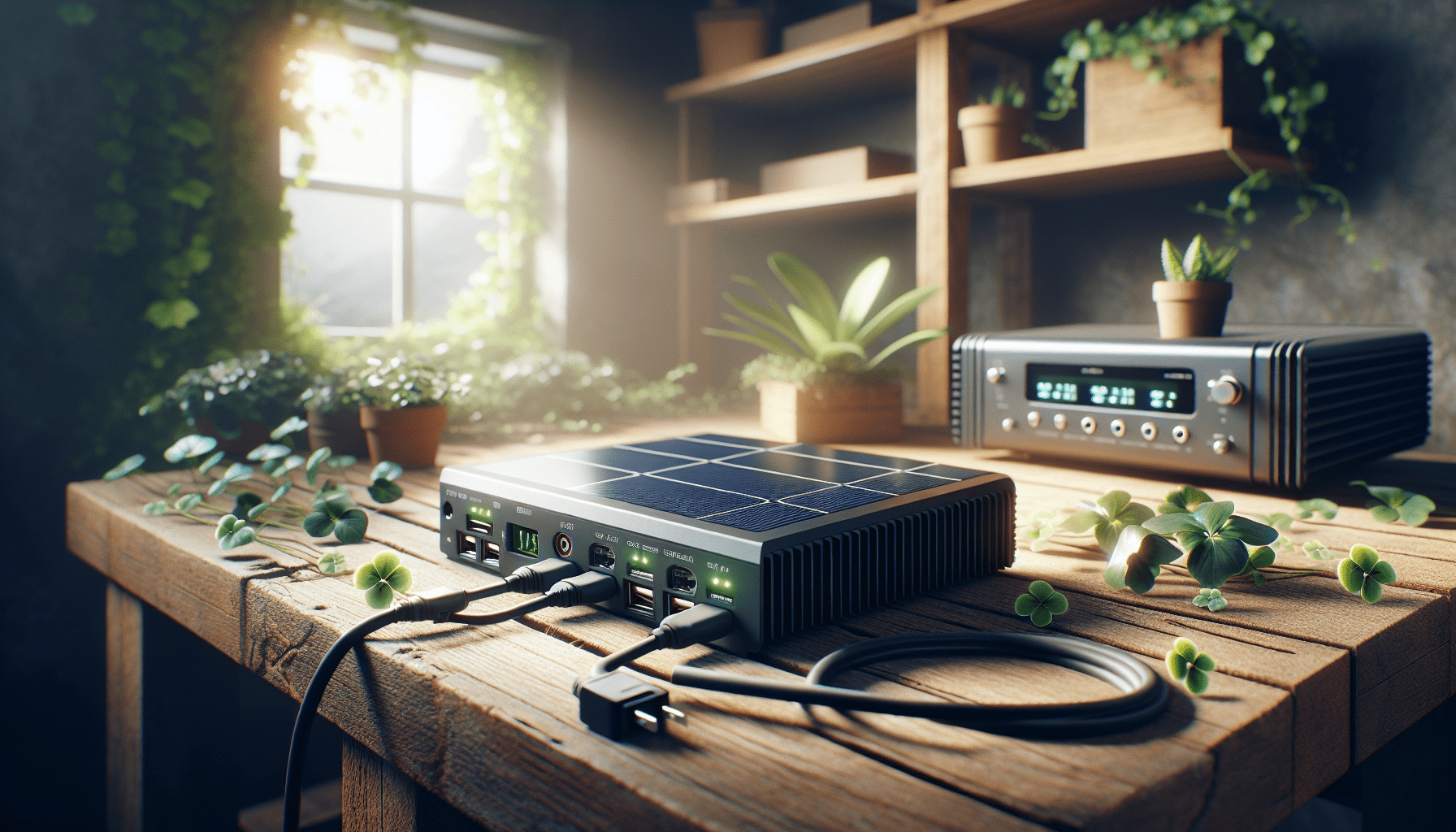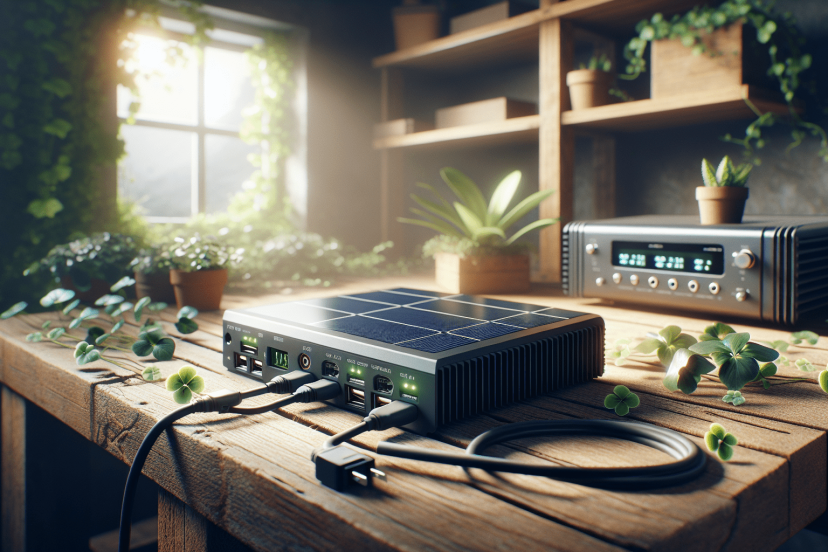Maximizing Efficiency with Solar Power Charge Controllers and Inverters
As an Amazon Associate, I earn from qualifying purchases, at no additional cost to you. Disclaimer
Have you ever thought about how to get the most out of your solar energy system? Understanding solar power charge controllers and inverters is key to maximizing efficiency and ensuring your investment pays off.
Understanding Solar Power Systems
Solar power systems consist of various components that work together to convert sunlight into usable electrical energy. Let’s break down the core components to give you a clearer picture.
Solar Panels
Solar panels are the heart of any solar power system. They capture sunlight and convert it into direct current (DC) electricity. The efficiency of your solar panels can greatly influence the overall output of your system.
Charge Controllers
A solar charge controller is responsible for managing the power coming from your solar panels to your battery bank. It ensures that batteries are charged quickly but not overcharged. Overcharging can lead to reduced battery life and even failure.
Inverters
Inverters convert the DC electricity generated by solar panels and stored in batteries into alternating current (AC) electricity, which is used by most home appliances. The type of inverter you choose can significantly impact your energy efficiency.
The Importance of Charge Controllers
You might wonder why charge controllers are so vital in a solar power system. Let’s break it down.
Preventing Overcharging
One of the main functions of a charge controller is to prevent excessive charging. An overcharged battery can lead to diminished performance and a much shorter lifespan.
Regulating Power Flow
Charge controllers regulate the power flow from the solar panels to the batteries, ensuring that the batteries receive the correct amount of electricity. This not only protects your batteries but also optimizes their charging.
Types of Charge Controllers
Understanding the different types of charge controllers can help you select the right one for your solar power system.
PWM (Pulse Width Modulation)
PWM controllers are standard and generally more affordable. They work by adjusting the amount of power sent to the battery, and while they are effective, they’re usually less efficient than MPPT controllers.
MPPT (Maximum Power Point Tracking)
MPPT controllers are more sophisticated and can significantly improve the efficiency of your solar system. They work by constantly analyzing the output of the solar panels and adjusting the charging accordingly. If you have a high-output solar panel system, an MPPT controller is likely the better choice.
Here’s a quick comparison of these two types of charge controllers:
| Feature | PWM | MPPT |
|---|---|---|
| Efficiency | Less efficient | More efficient |
| Cost | Generally cheaper | More expensive |
| Best Use | Smaller systems | Larger, high-output systems |

The Role of Inverters
Once you have your charge controller sorted, you need to focus on inverters. Understanding their function can significantly enhance the performance of your solar energy system.
Converting DC to AC
Inverters turn DC electricity into AC electricity, which is used by most appliances. In your home, anything that plugs into a wall outlet typically requires AC power.
Types of Inverters
Selecting the right inverter for your system is crucial. Here are the main types:
Pure Sine Wave Inverters
These inverters provide high-quality power that is very similar to what you receive from the grid. They are compatible with all appliances and are particularly important for sensitive electronics.
Modified Sine Wave Inverters
While these are less expensive than pure sine wave inverters, they produce a type of electricity that isn’t suitable for all devices. Some devices may experience reduced performance or even failure when powered by modified sine wave inverters.
Here’s a quick comparison of these two types of inverters:
| Feature | Pure Sine Wave | Modified Sine Wave |
|---|---|---|
| Output Quality | High-quality | Lower quality |
| Compatibility | Works with all appliances | Not all devices may work |
| Cost | Generally more expensive | Generally cheaper |
Maximizing Efficiency with Charge Controllers and Inverters
Understanding the roles of these components can lead to significant improvements in your solar energy system’s efficiency.
Size Your System Appropriately
To maximize efficiency, it’s crucial to size your solar power system appropriately. This includes determining the right number of solar panels, batteries, charge controllers, and inverters based on your energy needs.
The Importance of Battery Storage
Batteries are essential for storing energy generated during the day for use at night or during cloudy periods. The right charge controller will manage this process effectively, preventing overcharging and extending battery life.
Selecting the Right Battery Type
The main types of batteries used in solar systems include:
- Lead-Acid Batteries: These are common and relatively inexpensive but have a shorter lifespan.
- Lithium-Ion Batteries: These tend to have a longer lifespan and offer better performance but come at a higher upfront cost.
| Battery Type | Lifespan | Cost |
|---|---|---|
| Lead-Acid | 3-5 years | Lower cost |
| Lithium-Ion | 10-15 years | Higher cost |
Optimizing System Components
You may be tempted to cut costs by using cheaper components, but this can lead to inefficiencies. Ensure your charge controller and inverter are compatible with your solar panels and battery system to maximize potential.

Monitoring and Maintenance
Regular monitoring and maintenance are essential for sustaining efficiency over time.
Using Monitoring Systems
Many modern solar systems come with monitoring solutions that allow you to track energy production and consumption. This real-time data can help you make informed decisions regarding energy usage and potential upgrades.
Routine Maintenance Checks
Performing routine checks on your solar panels, batteries, inverters, and charge controllers is vital. Regular cleaning of panels and making sure connections are secure can prevent performance issues.
The Impact of Environmental Factors
Your solar system’s performance can be influenced by various environmental factors, which is why it’s essential to understand how they interact with your system.
Sunlight Availability
The amount of sunlight your area receives will naturally impact how much energy your system can produce. If your system is installed in a shaded area, it may not operate at optimal levels.
Temperature Effects
Temperature can also play a significant role in the efficiency of solar panels and batteries. Extreme hot or cold weather can impact performance, so understanding how your system works in various conditions is key.
Common Mistakes to Avoid
As you look to maximize the efficiency of your solar power system, consider avoiding these common pitfalls.
Oversizing or Under Sizing Components
Choosing components that are not appropriately sized can lead to inefficiencies. Make sure to consult with a solar professional to design a system tailored to your needs.
Skipping the Charge Controller
Some might think that a charge controller isn’t necessary, especially for smaller systems, but neglecting this critical component can lead to battery damage and increased costs over time.
Neglecting Maintenance
Some people install their systems and forget about them. Regular maintenance and monitoring are essential to ensure long-term efficiency and reliability.
Ignoring Regulations
Ensure that your solar installation complies with local regulations and standards. Not only can this avoid potential fines but it can also help optimize functionality and safety.
The Financial Benefits of Efficient Solar Systems
Investing in an efficient solar power system can yield significant financial benefits.
Reduced Energy Bills
Using solar power can dramatically lower your energy bills, especially if your system is functioning at optimal efficiency. Conversely, poorly managed systems can lead to higher costs than anticipated.
Government Incentives
Many governments offer incentives, tax rebates, or credits for investing in renewable energy. An efficient system can facilitate access to these programs, improving your overall ROI.
Increased Property Value
With the growing interest in sustainable living, homes equipped with efficient solar systems can see increased property values.
Conclusion
Maximizing the efficiency of your solar power system is about understanding the dynamics between charge controllers, inverters, and your entire setup. By choosing the right components and ensuring everything works together seamlessly, you’ll enjoy the benefits of sustainable energy for years to come.
Reflecting on how to implement and maintain your system will help you reap the financial and environmental rewards that come with solar energy. So take charge of your solar future and make these tips a part of your journey toward energy independence!



